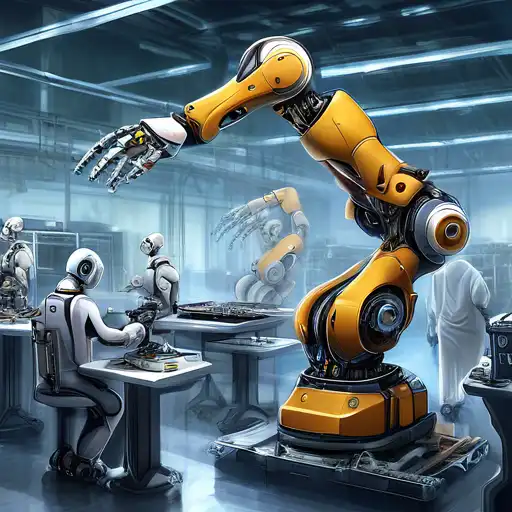The Revolutionary Impact of Robotics on Modern Manufacturing
In the ever-evolving landscape of manufacturing, robotics has emerged as a game-changer, revolutionizing how products are designed, produced, and delivered. This transformation is not just about automating repetitive tasks but redefining efficiency, precision, and scalability in manufacturing processes.
Enhanced Efficiency and Productivity
Robotic systems have significantly increased production rates by performing tasks faster and more accurately than human workers. Unlike humans, robots can work around the clock without fatigue, leading to a dramatic uptick in productivity. For instance, in the automotive industry, robots can assemble parts with precision in a fraction of the time it would take manually.
Improved Safety in the Workplace
Manufacturing environments can be hazardous, with risks of injuries from heavy lifting, exposure to harmful substances, or accidents with machinery. Robotics mitigates these risks by taking over dangerous tasks, ensuring a safer workplace for human employees. This not only reduces the incidence of workplace injuries but also lowers associated costs for businesses.
Cost Reduction and Scalability
While the initial investment in robotics can be substantial, the long-term savings are undeniable. Robots reduce labor costs, minimize waste through precision, and can be reprogrammed for different tasks, offering unparalleled scalability. Small and medium-sized enterprises (SMEs) are now adopting robotic solutions, thanks to more affordable and flexible options available in the market.
Customization and Flexibility
The demand for customized products is on the rise, and robotics is at the forefront of meeting this demand. Advanced robots equipped with AI and machine learning can adapt to new tasks quickly, allowing manufacturers to offer personalized products without significant downtime or retooling costs. This flexibility is transforming industries, from electronics to fashion, enabling mass customization at scale.
Challenges and Future Outlook
Despite the benefits, the integration of robotics into manufacturing is not without challenges. The initial cost, the need for skilled personnel to operate and maintain robots, and concerns over job displacement are significant hurdles. However, as technology advances and becomes more accessible, these challenges are being addressed, paving the way for a future where robotics and human workers collaborate more closely than ever before.
The transformation brought about by robotics in manufacturing is undeniable. From enhancing productivity and safety to enabling customization and reducing costs, the impact is profound. As we look to the future, the continued evolution of robotics promises even greater advancements, further solidifying its role as a cornerstone of modern manufacturing.
For more insights into how technology is shaping industries, explore our articles on technology trends and the future of work.
